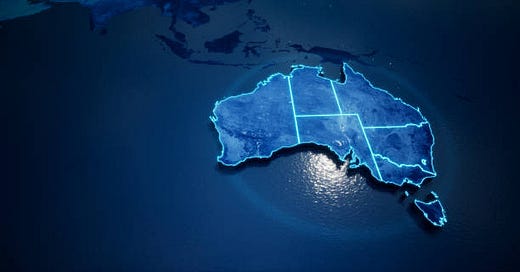Australia's Digital Disconnect
How Leadership’s lack of digital intelligence is killing our future
In a riveting new book, Apple in China: the Capture of the World’s Greatest Company, author Patrick McGee reveals that since 2008, Apple shipped people by the planeloads to train some 28 million Chinese on the intricacies of iPhone manufacturing on Apple-owned tools and machinery.
That’s a larger labour force than the entire population of Australia and an investment of at least $US55 billion annually by 2015.
“It would be banal to say that Apple wouldn’t be Apple today without China,” writes McGee, adding there is no other place on the planet that could have provided the cost, efficiency and scale benefits that China could.
But McGee’s unique thesis is that China wouldn’t be China today without Apple.
“(Apple’s) investments in the country have been spectacular, rivalling nation building efforts in cost, man-hours and impact. China brilliantly played its long-term interests against Apple’s short-term needs. …
“It’s not merely that Apple has exploited Chinese workers (as the common western narrative has long argued). It’s that Beijing has allowed Apple to exploit its workers so that China can in turn exploit Apple …. China has those skills because Apple built them there.”
On almost every vital metric whether its state-controlled culture and co-ordination, labour cost, scale, tech precision and ambition, it is unfair to make direct comparisons between Australia and China. Or Australia and Apple, or any of the Mag7 tech giants.
But it is essential to ask how effectively, for national economic and skills development, our political and business leaders have exploited the foreign tech giants and balanced our short and long-term sovereign interests against theirs.
The kindest answer to that is poorly.
Just consider the following two statements from our political leaders:
"We do not need to beg or borrow or copy from anywhere else,” Prime Minister Anthony Albanese declared several times throughout the election campaign as he promised a second term Labor Government would Build Australia’s Future on the back of a caring economy and our abundant sun, wind and land.
“We do not seek our inspiration overseas. We find it right here in our values and in our people."
Then this from ousted Federal Industry and Science Minister, Ed Husic. In an exit interview on the ABC’s Insiders program, he was asked whether there were any other Cabinet members who understand the challenges and opportunities of the 21st century tech-driven economy?
“I took more than 10 years getting my head around the complexity of technology. Talking with people. Listening. Learning. … I’m probably the person most well versed in the government around that.”
The lack of digital and tech savvy, even curiosity, among our political and business leadership classes and our media has held Australia’s growth and productivity back. The neglect has allowed the foreign-owned giants and large management consultancies a free ride in the domestic market for decades.
The foreign-owned software giants, hyperscalers, defence primes and large management consultancies are an indispensable part of the nation’s digital economy and defence infrastructure. But they overwhelmingly operate as branch offices for digital advertising, sales and marketing strategies designed back at HQ.
While they’ve invested in employees and digital infrastructure, they have done next to nothing to bolster the ever-contracting domestic manufacturing or R&D base, in good part because Australian leaders haven’t demanded they do more.
They have gobbled up many billions of dollars of digital advertising revenue and all the consumer data that comes with it and have paid little tax. They have persistently won the nation’s biggest government and business enterprise contracts with little Australian industry participation, many resulting in budget blowouts and failed implementations.
The latest example is what Independent Senator for the ACT, David Pocock describes as a blistering report from the Australian National Audit Office (ANAO) which found the Department of Defence failed to meet its own requirements to involve Australian companies in its major procurements. Defence also accepted KPMG’s claim it was “wholly Australian-owned”.
In Australia, like in every other advanced economy, digital information and communications technologies (ICT) are foundational to most everything we do for economic and national security. Artificial Intelligence is the latest and arguably the most disruptive of those ICT technologies.
So, if a second term Labor government is serious about addressing the nation’s productivity and industrial decline, as Federal Treasurer Jim Chalmers has said, it is essential that we ask some important questions about the role of the foreign-owned giants and the state of our sovereign capability.
“Political and public service leaders love to hate the tech giants and consultancies” says one tech sector insider, “but they have passively accepted their convenient arguments for procurement and proficiency because there is not enough knowledge to push back against them.”
The insider adds that now with the AI revolution, the tech giants have successfully convinced our political class that only they have the know-how, the capital and the scale to implement.
“They’ve intimidated the political class and bureaucracy into believing we can’t compete.”
Australia’s embrace of the AI revolution has been one of the most timid in the OECD according to Stanford University’s Global AI Vibrancy Tool.
Keep reading with a 7-day free trial
Subscribe to Realpolitech to keep reading this post and get 7 days of free access to the full post archives.




